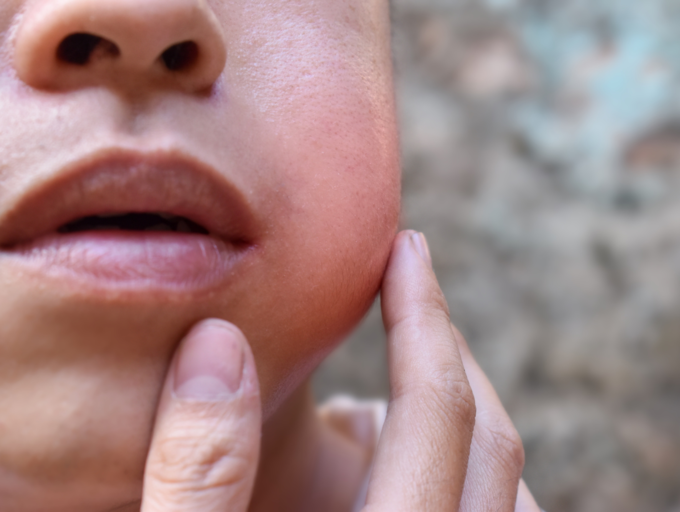01/6Mumps could pose serious threat to health

Worried that your little one got mumps? Mumps is a contagious viral infection primarily affecting the salivary glands, and it is caused by the paramyxovirus. The virus is typically transmitted through respiratory droplets or direct contact with infected saliva, making crowded environments and close personal contact conducive to its spread.
02/6How is mumps caused?


The mumps virus is the primary culprit behind this infection. It enters the body through the respiratory tract and then spreads through the bloodstream. The virus targets the parotid glands, which are responsible for producing saliva, leading to inflammation and swelling.
03/6Major symptoms of mumps


Dr. Garima Pathania MBBS, MD (Paediatrics and Neonatology)Consultant Paediatrics at Ruby Hall Clinic, Wanowrie says, “The hallmark sign of mumps is the swelling of one or both parotid glands, resulting in a characteristic "chipmunk cheek" appearance. Other common symptoms include fever, headache, muscle aches, fatigue, and difficulty swallowing. While these symptoms may overlap with other respiratory infections, the distinctive jaw swelling often aids in mumps diagnosis.”
Complications of mumps can include inflammation of other organs, such as the brain (encephalitis) or the testicles (orchitis). While rare, these complications underscore the importance of vaccination.
04/6How is mumps diagnosed?


Diagnosing mumps typically involves a combination of clinical evaluation and laboratory tests. A healthcare professional will assess symptoms and examine the characteristic jaw swelling. To confirm the diagnosis, a blood test or a saliva sample may be analyzed to detect the presence of the mumps virus. Timely diagnosis is crucial to prevent the further spread of the infection.
05/6How to treat mumps?


As far as the treatment goes, there is no specific antiviral treatment for mumps, so management primarily focuses on relieving symptoms and preventing complications. Bed rest, adequate hydration and pain relievers help alleviate discomfort. Applying warm or cold compresses to the swollen glands can also provide relief. It's important to isolate the infected child to prevent the virus from spreading.
06/6Vaccination to prevent mumps


Parents must know that vaccination is a key preventive measure. The MMR (measles, mumps, and rubella) vaccine has proven highly effective in reducing the incidence of mumps. Typically administered in two doses during childhood, the vaccine provides long-lasting immunity. However, breakthrough infections can occur, especially in unvaccinated individuals or those with incomplete vaccination. In conclusion, vaccination remains the most effective preventive measure, emphasizing the importance of maintaining high vaccination rates to protect individuals and communities.
also Read: Eating dinner after 9pm may increase the risk of stroke by 28%













































































































closecomments
SIGN IN WITH
GoogleEmail